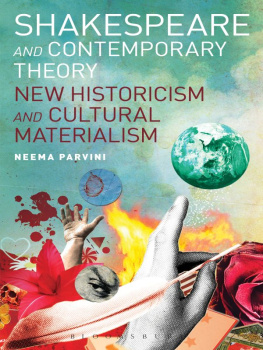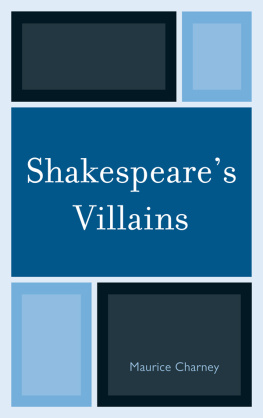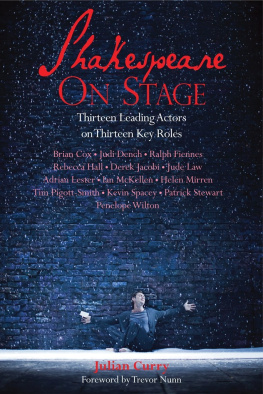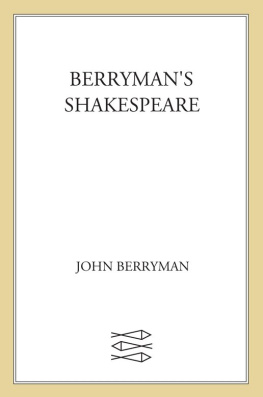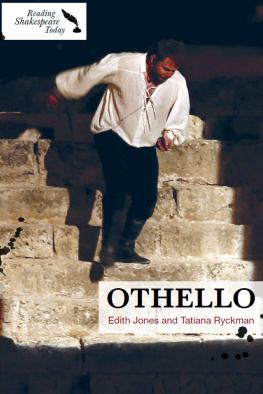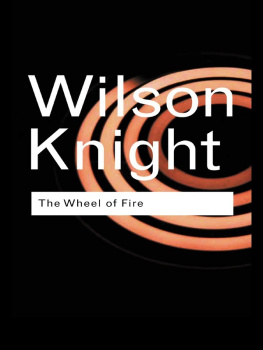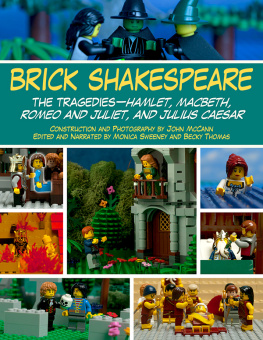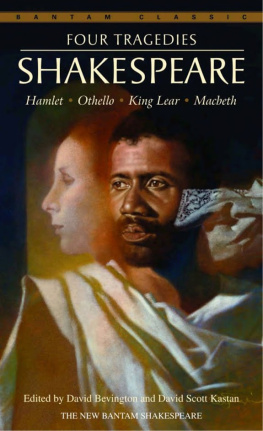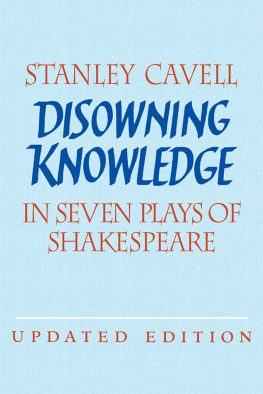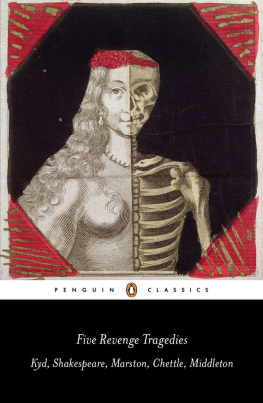NEW PENGUIN SHAKESPEARE LIBRARY
SHAKESPEAREAN TRAGEDY
A. C. Bradley was born in Cheltenham in 1851, the son of a clergyman. He was educated at Balliol College, Oxford, where he studied classics. He first taught literature at Liverpool University, then in 1889 became Professor of English Language and Literature at Glasgow. From 1901 to 1906 he was Professor of Poetry at Oxford University. His lectures appeared in book form as Shakespearean Tragedy in 1904, and five years later he published Oxford Lectures on Poetry, which includes a memorable one on Antony and Cleopatra. A. C. Bradley died in 1935.
John Bayley is Warton Professor of English Literature, Oxford University. Among his many books are The Romantic Survival: A Study in Poetic Evolution, The Characters of Love: A Study in the Literature of Personality, Tolstoy and the Novel, Pushkin: A Comparative Commentary, An Essay on Hardy, Shakespeare and Tragedy and a detailed study of A. E. Housmans poems. Alice (1994) and The Queer Captain (1995) are the first two novels of a projected trilogy he is now writing. He has also introduced Pushkins Eugene Onegin and edited Henry Jamess The Wings of the Dove for the Penguin Classics.
A. C. BRADLEY
SHAKESPEAREAN
TRAGEDY
LECTURES ON HAMLET, OTHELLO,
KING LEAR, MACBETH
WITH A FOREWORD BY JOHN BAYLEY

PENGUIN BOOKS
PENGUIN BOOKS
Published by the Penguin Group
Penguin Books Ltd, 80 Strand, London WC2R 0RL, England
Penguin Putnam Inc., 375 Hudson Street, New York, New York 10014, USA
Penguin Books Australia Ltd, 250 Camberwell Road, Camberwell, Victoria 3124, Australia
Penguin Books Canada Ltd, 10 Alcorn Avenue, Toronto, Ontario, Canada M4V 3B2
Penguin Books India (P) Ltd, 11 Community Centre, Panchsheel Park, New Delhi 110 017, India
Penguin Books (NZ) Ltd, Cnr Rosedale and Airborne Roads, Albany, Auckland, New Zealand
Penguin Books (South Africa) (Pty) Ltd, 24 Sturdee Avenue, Rosebank 2196, South Africa
Penguin Books Ltd, Registered Offices: 80 Strand, London WC2R 0RL, England
www.penguin.com
First published by Macmillan and Co. 1904
Published with a Foreword by John Bayley in Penguin Books 1991
17
Foreword copyright John Bayley, 1991
All rights reserved
Except in the United States of America, this book is sold subject to the condition that it shall not, by way of trade or otherwise, be lent, re-sold, hired out, or otherwise circulated without the publishers prior consent in any form of binding or cover other than that in which it is published and without a similar condition including this condition being imposed on the subsequent purchaser
EISBN: 9781101491324
CONTENTS

FOREWORD

It was suggested to me by a Glasgow student. This footnote from the sixth lecture of Shakespearean Tragedy tells us a good deal about Bradleys method, and his personality. That method is completely open, unprofessional, unassuming. He talks about Shakespeare and Shakespeares characters as if he were discussing friends or colleagues, or the people he has met with in a memorable novel. Shakespeare is like life, and it is natural to talk about his plays as if we were participating in them as we do in life, and to discuss and pass on the impressions and experiences of others.
This assumption can lead to some surprising, even startling, comments. She grew up with Goneril and Regan for sisters. Well, yes, now he mentions it, thats true. Cordelia and her sisters were little girls once, playing, quarrelling together, being nice or nasty to each other And yet, wait a moment, there is no such person as Cordelia? she is part of the mechanism of a highly artificial construction for our entertainment? This kind of involuntary double-take on the readers part is central to the Bradleyan effect; indeed it virtually is the Bradleyan effect. It is a very simple thing, but all-important for the sense of Shakespeare that he leaves with us.
In its own time this attitude to the Shakespearean experience was highly popular and extremely influential. Bradley put Shakespeare on the map for generations of readers and students for whom the plays might not otherwise have become real at all. They became real because he talked about them in the way he did. His simple, lucid exposition, absorbed in what it was about, but courteous to any objection or counter-suggestion, must have seemed somewhat like a natural philosopher expounding a problem, even a scientist or biologist describing the characteristics of a species. The plays came fully before the audience, in all their richness of possibility, all their wealth of interpretation; and they came, of course, as dramatic experiences to read, and to read about, rather than as something to be seen in the theatre.
The distinction between drama and theatre is important. Bradley had no objection to the theatre, but he took it for granted that the theatre of his time was not the place for Shakespeare, that the Shakespearean fullness, the sense of persons and motives and lives past and to come, could not possibly be produced there. Shakespeare, like the novel, was a reading experience, for only the reader could assay and estimate the full potentiality of the drama, even though Bradley was keenly interested in the ways in which the actors of his own or an earlier time interpreted a part. Should a Lady Macbeth, for example, utter the phrase We fail, in reply to her husbands If we should fail?, as a question of contemptuous astonishment, or as expressive of the sublime acceptance of the possibility? Should she give the impression of a genuine faint, in the scene after the murder is discovered, or only of the appearance of one? Together with debate on such details goes an inconspicuous but meticulous scholarship on textual matters. But Bradley clearly felt that the place for these things was in notes rather than in the mainstream of his expository narrative. If the drama should be experienced like a novel, so, in a sense, should be his commentary on it.
Drama is not necessarily a matter for the theatre. Henry James, curiously enough, was coming at about the same time to the same conclusion. After the failure on the stage of his play Guy Domville, he wrote in his diary notebook that he almost blessed the pangs and the pains and the miseries of it,
If there has lurked in the central core of it this exquisite truth that what I call the divine principle in question is a key that, working in the same general way, fits the complicated chambers of both the dramatic and the narrative lock
It would not be too much to say that Bradleys lectures are based on a rather similar kind of apprehension. The novel, as Jamess own example witnessed, had, as it were, developed to a point of depth and subtlety at which it met the true Shakespearean specification, in which the two worlds of dramatic event and fictional narration joined together and became one. Shakespeare, it would now be seen, reached across the centuries to inform and inspire the genre of the novel at its most developed and its most sophisticated. Drama and fiction could be seen as the same process, read by the same light, without need for the artificial claims of the theatre.
For the theatre could only simplify, and it was of the essence of the Shakespearean drama, as of the novel, both to naturalize and to complicate. Bradley and James would have seen eye to eye on this, and indeed the Professor of English Literature and his elder brother, the Oxford philosopher F. H. Bradley, moved in the same circles as James, and had many friends in common. Behind the tone and tenor of the lectures on Shakespearean Tragedy lie many of the ideas and assumptions of the ages best creative minds; and Bradleys style is as clear, forceful and penetrative as that of his philosophical brother. To take one instance, he rapidly follows up his perception that the


